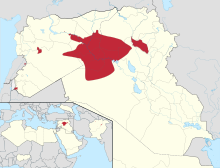This past week Iraq was once again the source of the most relevant news concerning the World's energy predicament. The political and military situation is degrading fast, with several developments attesting the powerless of the Baghdad government. It seems the ISIL is just the tip of the iceberg, several other groups or organisations are in the fray, clearly matching Baghdad's army. Al-Maliki's government is clearly on the defensive, both politically as militarily.
A new front of conflict opened to the north with the Kurdish autonomous region, even if in this case it is purely political. The Kurds are set to bypass the Baghdad government and export petroleum solely by themselves. This can actually be more concerning to the Shiia establishment than the rebellion in Anbar.
For how long can Iraq's petroleum production stay where it is today?
25 January 2014
18 January 2014
Press review 18-01-2014 - Iran back to business
The most interesting news in the energy world seem to be still coming out of the Middle East. A new important step into the acceptance of Iran's nuclear program was reached, with a clear warming of relations between NATO and the Persian state. Tehran is wasting no time in making up the most of the ease in sanctions. The international oil majors remain on the sidelines for now, with watering mouths.
The Shiia now seem to have the favour of the US (and NATO) west of the Euphrates. With some cooperation, the western powers prefer to deal with Shiia hierarchies than with the conservative Sunni structure (often "linked" to Al Qaeda by the media). Why the attitude is pretty much the opposite elsewhere remains something of a mystery.
The Shiia now seem to have the favour of the US (and NATO) west of the Euphrates. With some cooperation, the western powers prefer to deal with Shiia hierarchies than with the conservative Sunni structure (often "linked" to Al Qaeda by the media). Why the attitude is pretty much the opposite elsewhere remains something of a mystery.
11 January 2014
Press review 11-01-2014 - ISIL expands its territory
 The territory controlled by the ISIL according to the Wikipaedia.
The territory controlled by the ISIL according to the Wikipaedia.
|
The information coming out of the newly acquired territories by the ISIL in Iraq is scant, but the western media has still managed to join the fray. Earlier this week the American media was reporting that "tribesmen" where helping the Iraqi army fighting the ISIL; days later the French press claimed that "tribesmen" had helped the ISIL taking full control of Fallujah.
The slowness of the Shia-led government to fight back may mean on the one hand that the local population is not on their side and on the other that the ISIL may have more resources than reported by the mainstream media. One remarkable aspect of this conflict is that so far it has produced a relatively limited number of refugees, 15 000, when compared to the estimated 320 000 living in Fallujah alone.
04 January 2014
Press review 04-01-2014 - Iraq falling into civil war
Followers of this blog know that I'm on the optimistic side regarding petroleum reserves in Iraq. The argumentation by the late Dr. Ali Bakhtiari lead me years ago to regard this country as the last bastion of cheap conventional petroleum. The eastern part of the country is largely unexplored and it is possibly that the geological structures that loked the resources today tapped by Saudi Arabia and Kuwait extended further into the north. If there is a country able to positively impact petroleum markets today is Iraq.
There is just one problem: Iraq is not a real country, it is but a synthetic creation, a legacy of colonial times disregarding any ethnic or cultural realities. The insistence on this format by modern powers seems reaching exhaustion, after a decade of violent power reshuffling. Earlier this week the Sunni representatives quit the Iraqi parliament, delivering the final blow to an already politically moribund government.
There is just one problem: Iraq is not a real country, it is but a synthetic creation, a legacy of colonial times disregarding any ethnic or cultural realities. The insistence on this format by modern powers seems reaching exhaustion, after a decade of violent power reshuffling. Earlier this week the Sunni representatives quit the Iraqi parliament, delivering the final blow to an already politically moribund government.